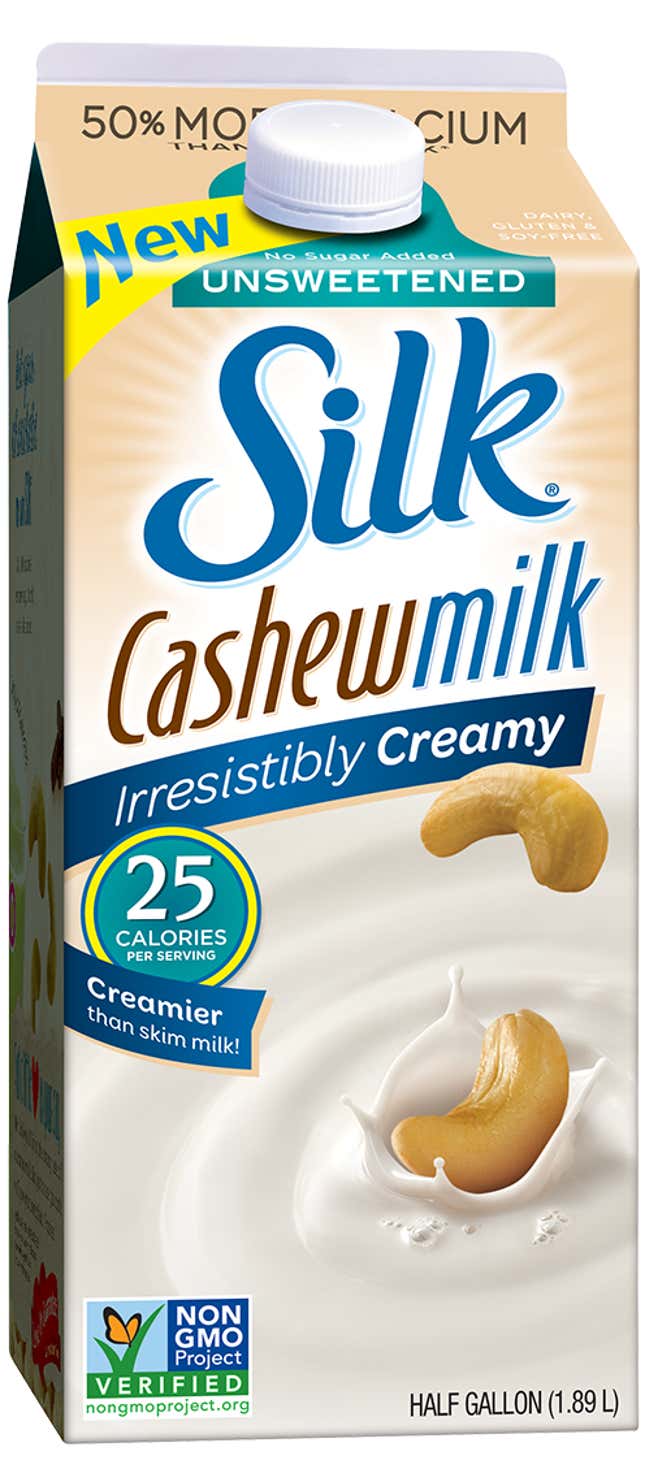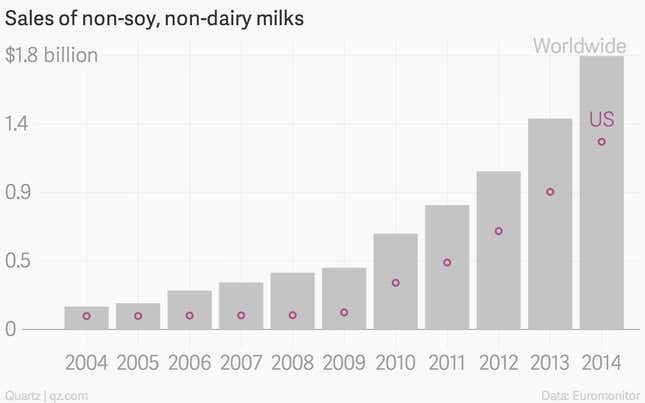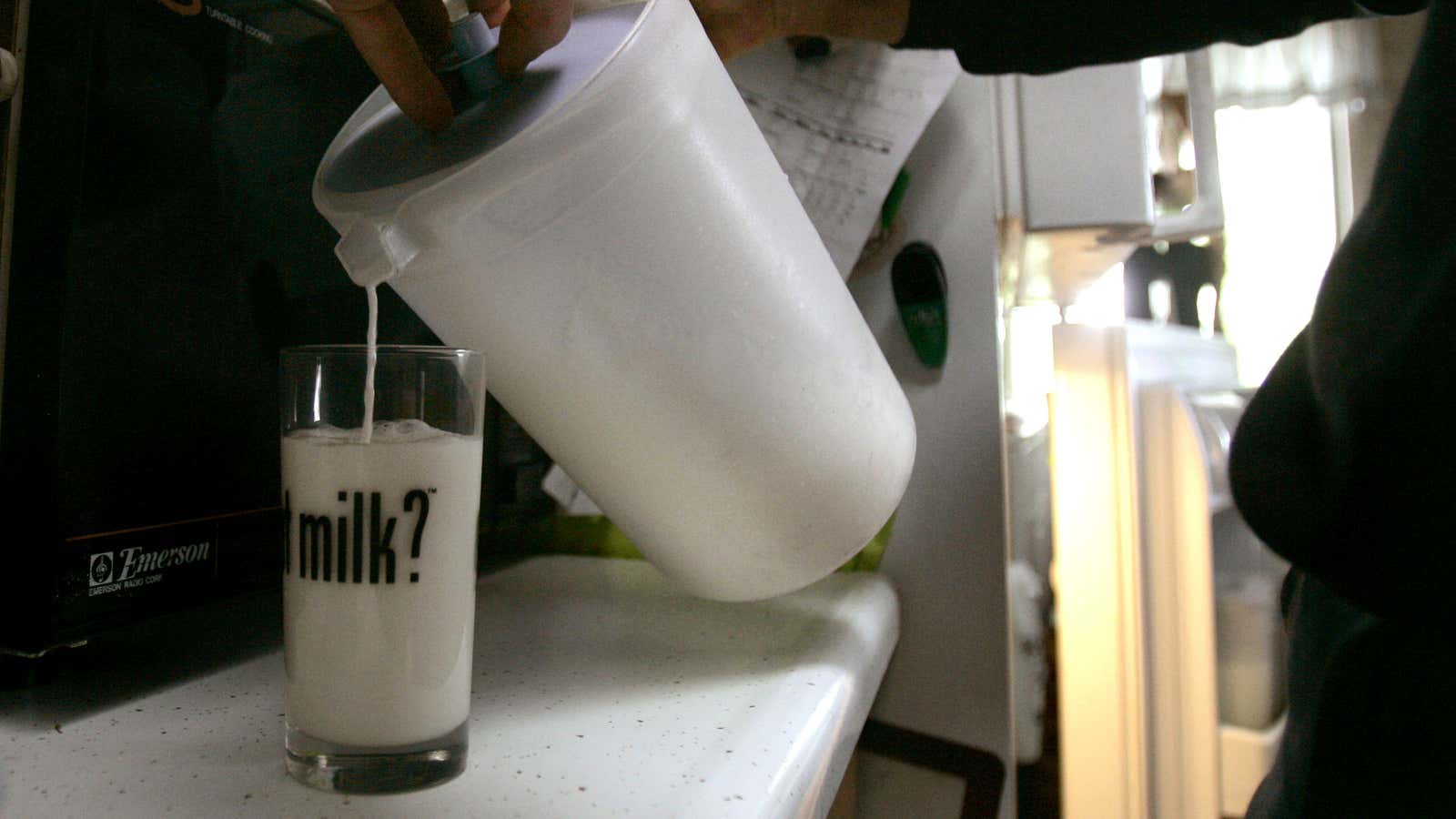
Silk, a company based in Boulder, Colorado, started out in the late 1970s selling all sorts of soy products—the most successful of which would turn out to be a substitute for cow’s milk. Silk soy milk came in three flavors and was sold in the refrigerated section of the supermarket right next to regular milk. Silk was, for a while, America’s number one brand for dairy-free products, and all those products were made from soy.
Not until 2010, when soy milk was just beginning to fall out of favor, did Silk start manufacturing something with a different main ingredient. That something was almond milk.
In 2011, Silk added coconut milk to its line. Meanwhile, almond milk’s popularity surged, replacing soy as America’s favorite dairy substitute in 2013. Hazelnut milk and rice milk have also striven for popularity.
Now there’s one more option: After hitting Canadian supermarkets in November, Silk’s cashew milk arrived in the US on December 1.

The commercialization of cashew milk comes at a good time. As Bloomberg Businessweek noted recently, the almond-milk fad has its skeptics. According to one, “the almond-milk industry is selling you a jug of filtered water” with a handful of ground almonds and some added vitamins and minerals (and sometimes sugar) mixed in. Some health advocates also have a problem with carrageenan, a seaweed-based thickener added to many commercial soy and nut milks; Silk (and its owner, WhiteWave) will phase carrageenan out of all products over the next two years.
Almond milk has also gotten more expensive to produce thanks to this year’s drought in California, where 80% of the world’s almonds are grown. California almond growers made an average of $3.48 per pound this year, up from $2.58 in 2012, according to the latest survey of the state’s almond industry. According to Greg Van Ullen, who with his wife Julie founded and operates a New York-based nut milk company called OMilk, almond prices have been volatile, but his cashew supply has been constant and prices have been stable. Cashews are grown in Brazil, India, Vietnam, and several African countries.
But Van Ullen doesn’t necessarily think cashew milk is a better or more attractive substitute for cow’s milk. His company’s cashew milk is “more like a shake than a milk,” he says, because cashews are so soft that after being soaked and ground with water, there’s nothing to filter, resulting in a thicker liquid. On the other hand, doctor and health writer Andrew Weil says cashew milk—which he makes himself in a blender, varying the proportions of water to nuts to get the consistency he wants— is ”really my favorite.” Let’s see what the consumers have to say.
